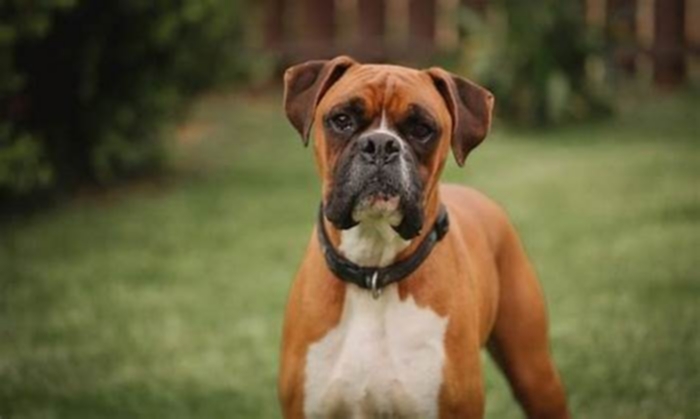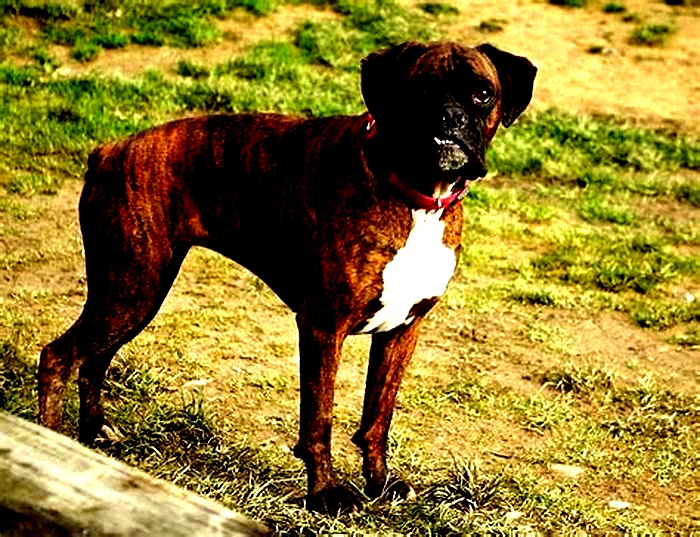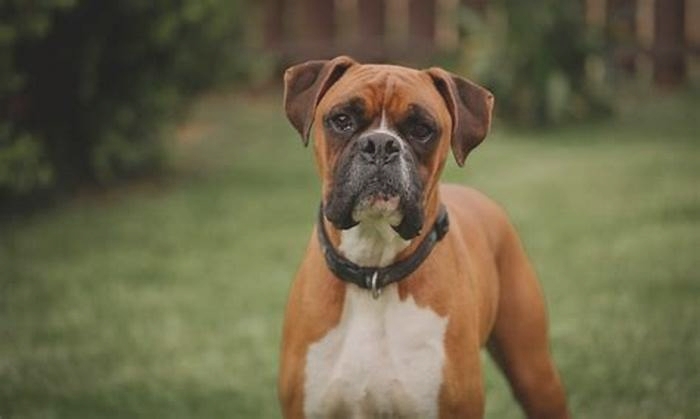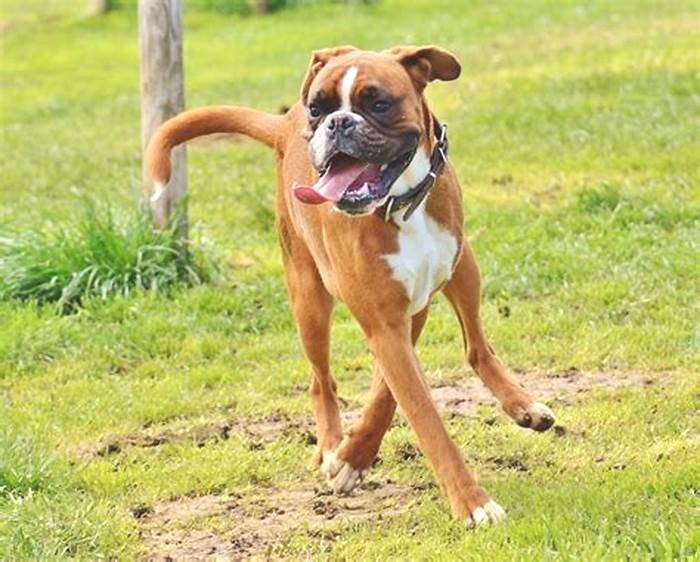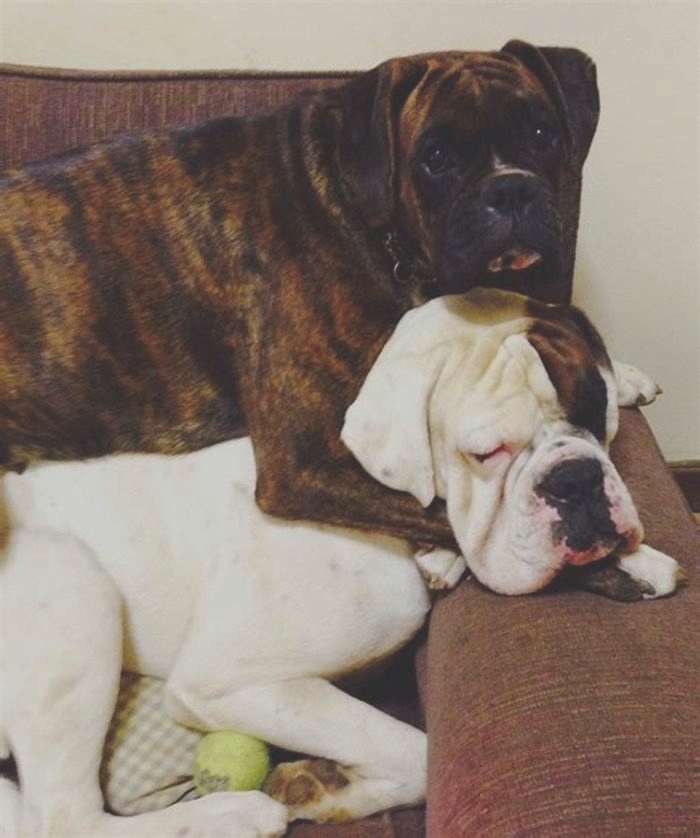At what age do Boxer dogs start slowing down
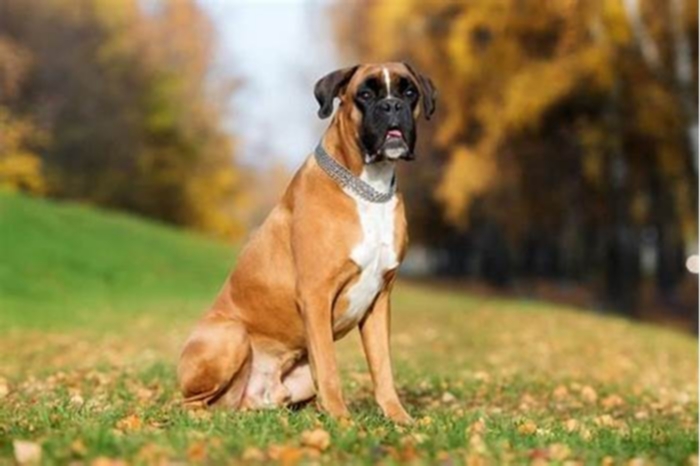
Dealing with Old Age Problems in Boxer Dogs
Boxer dogs are beloved pets for many families, but as they age, they may face a variety of health issues. Understanding the aging process in Boxer dogs can help you anticipate and manage problems before they become serious. Here is a detailed look at common old age problems in these dogs and tips on how to deal with them.
This article is part of my series onWhy boxers are the worst dogs
Understanding the Aging Process in Boxer Dogs
Boxer dogs are considered to be senior when they reach the age of seven years old. The aging process in Boxer dogs is gradual, but it can lead to a range of health issues. Some of the most common health problems in senior Boxer dogs include arthritis, cancer, cognitive impairment, and dental problems. These issues can be managed with the right care and attention.
As Boxer dogs age, they may also experience changes in their behavior and temperament. They may become less active and more prone to sleeping for longer periods of time. They may also become more irritable or anxious, and may be less tolerant of children or other pets in the household. Its important to be patient and understanding with your senior Boxer dog, and to provide them with a comfortable and safe environment.
In addition to physical and behavioral changes, senior Boxer dogs may also require changes to their diet and exercise routine. As they become less active, they may need to consume fewer calories to maintain a healthy weight. They may also benefit from low-impact exercise, such as short walks or swimming, to help maintain their muscle mass and joint health. Consult with your veterinarian to determine the best diet and exercise plan for your senior Boxer dog.
Common Health Issues in Senior Boxer Dogs
Arthritis and other joint problems are very common in Boxer dogs, especially as they age. This can make it difficult for them to get around or enjoy daily activities. Cancer is also a concern, with some breeds being more prone to certain types than others. Additionally, cognitive impairment and dementia can cause confusion, disorientation and anxiety in aging dogs.
Another common health issue in senior Boxer dogs is heart disease. Boxers are prone to developing heart conditions such as dilated cardiomyopathy, which can lead to heart failure. It is important to monitor your senior Boxers heart health and seek veterinary care if you notice any symptoms such as coughing, difficulty breathing, or lethargy.
Importance of Regular Vet Check-Ups for Older Boxer Dogs
Veterinary check-ups are essential for older Boxer dogs. Regular exams give vets an opportunity to keep track of your dogs health, detect early warning signs and develop a care plan thats suited to their individual needs. Senior Boxer dogs should have exams at least twice a year, and more frequently if health problems have already been detected.
During a check-up, the vet will perform a physical examination, which includes checking your dogs eyes, ears, teeth, and coat. They will also listen to your dogs heart and lungs, and check for any lumps or bumps. Blood and urine tests may also be conducted to check for any underlying health issues.
Regular check-ups can help prevent serious health problems from developing. For example, if your vet detects early signs of arthritis, they can recommend a treatment plan to manage the condition and prevent it from worsening. By staying on top of your dogs health, you can ensure that they live a long and happy life.
Managing Joint Problems in Aging Boxer Dogs
Joint problems are common in aging Boxers and can be managed effectively with proper care and medication. Weight management is also important for older dogs as it helps reduce the strain on their joints. Additionally, exercise should be modified to avoid high impact activity that can put too much pressure on joints. Physiotherapy can also help to reduce pain and improve mobility.
It is important to note that joint problems in Boxers can also be genetic. Therefore, it is recommended to obtain a health certificate from a reputable breeder before purchasing a Boxer puppy. This can help to ensure that the puppy does not have any pre-existing joint conditions that may worsen with age.
In addition to medication and physiotherapy, there are also natural supplements that can help to support joint health in aging Boxers. Glucosamine and chondroitin are commonly used supplements that can help to reduce inflammation and improve joint mobility. However, it is important to consult with a veterinarian before giving any supplements to your dog.
Nutritional Needs of Senior Boxer Dogs
Adequate nutrition is essential for senior Boxer dogs to maintain good health. A well-balanced diet with good quality protein, vitamins, and minerals is an excellent way to ensure your aging dog gets the nutrients they need. Older dogs may need some changes to their diet over time to accommodate changes in their nutritional needs. For Boxer dogs, its important to avoid overfeeding and to give them the right proportions of macronutrients.
As Boxer dogs age, they may become less active and require fewer calories. Its important to adjust their food intake accordingly to prevent obesity and related health issues. Additionally, senior Boxers may benefit from supplements such as glucosamine and chondroitin to support joint health and mobility.
Water intake is also crucial for senior Boxer dogs. As they age, they may become less efficient at regulating their body temperature and may be more prone to dehydration. Providing fresh, clean water at all times and monitoring their water intake can help prevent dehydration and related health issues.
Dental Care for Elderly Boxer Dogs
Dental care for elderly Boxers is especially important. Poor oral hygiene can lead to tooth loss and gum disease. To maintain good dental hygiene in an aging Boxer, you should brush their teeth at least once a day with a soft toothbrush and pet toothpaste. Additionally, providing dental chews or toys can help keep their teeth clean and healthy.
It is also important to schedule regular dental check-ups with your veterinarian. They can perform a thorough cleaning and check for any signs of dental problems, such as cavities or infections. Early detection and treatment can prevent further damage and discomfort for your furry friend.
Another way to promote good dental health in elderly Boxers is by feeding them a balanced diet. Avoid giving them sugary or sticky treats, as these can contribute to plaque buildup and tooth decay. Instead, opt for dental-friendly treats or offer them crunchy fruits and vegetables, such as carrots or apples, which can help clean their teeth naturally.
Exercise and Activity Tips for Older Boxer Dogs
Although a Boxer dog may not have the same exercise and activity needs as when they were younger, regular activity is still important for their physical and mental well-being. Its important to provide them with low-impact exercises like short walks, swimming and gentle playtime. Even though they may not have as much energy, they still need to maintain good body condition and muscle tone for their health.
In addition to low-impact exercises, its also important to provide mental stimulation for older Boxer dogs. This can include puzzle toys, obedience training, and interactive games. Mental stimulation can help keep their minds sharp and prevent boredom, which can lead to destructive behavior.
Its also important to monitor your older Boxer dogs activity level and adjust accordingly. If they seem to be struggling with certain exercises or activities, its best to modify or reduce them. Additionally, regular check-ups with a veterinarian can help ensure that your Boxer dog is healthy enough for exercise and activity.
Cognitive Dysfunction Syndrome in Aging Boxer Dogs
Cognitive dysfunction syndrome is a disorder that can affect aging boxer dogs. Symptoms can include disorientation, loss of memory, and confusion. It can be prevented by regular check-ups and ensuring that the dog remains mentally stimulated with various activities and social interactions. Additionally, veterinarians can provide medication to slow the progression of cognitive decline in aging dogs.
It is important for owners of aging boxer dogs to be aware of the signs of cognitive dysfunction syndrome, as early detection can lead to better management of the condition. Some common signs to look out for include changes in sleeping patterns, increased anxiety, and decreased interest in activities that the dog previously enjoyed. If you suspect that your boxer dog may be experiencing cognitive dysfunction syndrome, it is important to consult with a veterinarian to discuss potential treatment options and ways to improve your dogs quality of life.
Creating a Comfortable Living Environment for Senior Boxer Dogs
Comfort is essential for aging Boxer dogs to enjoy their golden years. Creating a comfortable living environment can include providing soft bedding, ramps or stairs to access high areas, and keeping them warm in cold weather. Avoid placing them in high-stress environments or in prolonged isolation. Making small accommodations can have a significant impact on your pets comfort and wellbeing.
Another important aspect of creating a comfortable living environment for senior Boxer dogs is ensuring that they receive proper nutrition and exercise. As dogs age, their dietary needs change, and they may require a different type of food or supplements to maintain their health. Additionally, regular exercise can help keep their muscles and joints strong and prevent obesity, which can lead to other health issues. Consult with your veterinarian to determine the best diet and exercise plan for your senior Boxer.
Strategies for Managing Incontinence in Aging Boxer Dogs
Incontinence can be common in aging Boxer dogs and can be managed with the right strategy. Providing easy access to outdoor areas, potty training, and avoiding anxiety-causing situations can help. Pet owners can also explore medication options recommended by a veterinarian. To prevent hygiene-related problems, its important to clean up any messes right away.
Another strategy for managing incontinence in aging Boxer dogs is to use absorbent pads or diapers. These can be helpful in preventing messes and keeping the dog comfortable. Its important to change the pads or diapers frequently to prevent skin irritation and infection.
Additionally, modifying the dogs diet can also help manage incontinence. Feeding the dog a high-quality, low-fiber diet can reduce the frequency of bowel movements and make it easier for the dog to control their bladder. Its important to consult with a veterinarian before making any changes to the dogs diet.
Coping with the Loss of an Elderly Boxer Dog
Unfortunately, the day will come when you have to say goodbye to your dog. Coping with the loss of an elderly Boxer dog can be difficult, but understanding their life cycle and creating a healthy environment helps them live a long, happy life. When the time comes, its important to reach out to support groups or bereavement counselors to help you through your grief.
The Role of Pet Insurance in Managing Old Age Problems in Boxer Dogs
Pet insurance can be a great resource for managing old age problems, as many routine check-ups and treatments may not be covered by traditional pet insurance policies. Insuring your Boxer dog early in life is the best way to get cost-effective coverage and to avoid unexpected expenses in their old age.
Home Remedies and Natural Supplements for Senior Boxer Dogs
There are many home remedies and natural supplements that can be used to improve the health of senior Boxer dogs. Supplements can range from vitamin supplements to natural anti-inflammatory supplements like turmeric. Adding supplements can improve the overall quality of their lives, but its recommended to always speak with your veterinarian before beginning any new treatments.
Supportive Care Techniques for End-of-Life Care in Elderly Boxer Dogs
End-of-life care in elderly Boxer dogs is a delicate process, and supportive care techniques can make a huge difference. Providing palliative care, such as pain management, wound care, and IV fluids, can help your dog feel comfortable in their final days. Euthanasia may also be an option in situations where the dog is suffering and the condition is not improving.
In conclusion, Boxer dogs make wonderful companions, but as they age, they need extra care and attention from their owners. By understanding the aging process and taking steps to prevent or manage common health problems, you can help your beloved pet live a long and happy life. With proper care and attention, senior Boxer dogs can continue to be an important part of your family for many years to come.
Im a dog enthusiast and creator of Doggie Connect, a blog sharing my experience caring for dogs. I love dogs and Im committed to helping others with dog care. Contact me at [email protected] for assistance.


